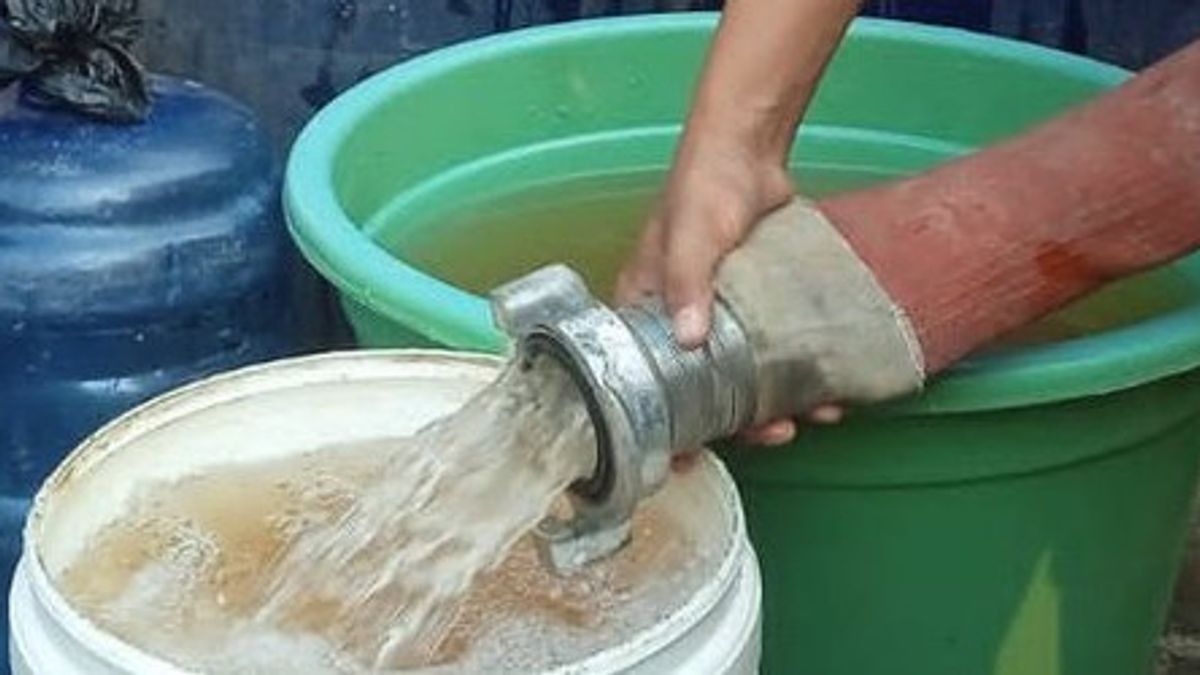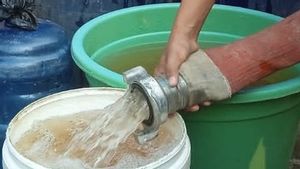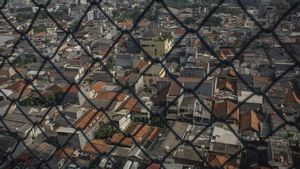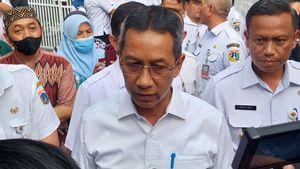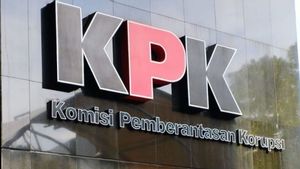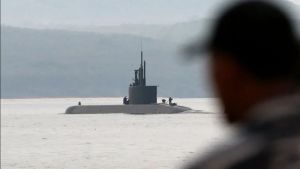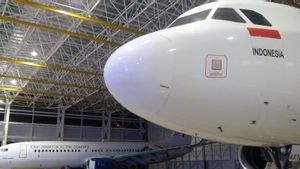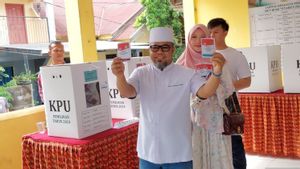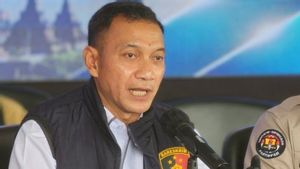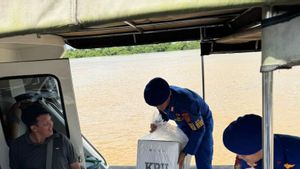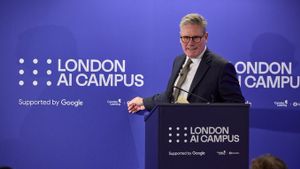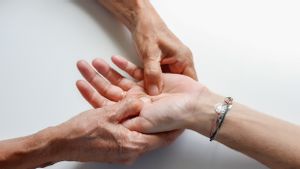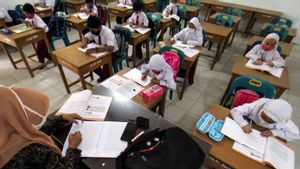JAKARTA - Commission V of the DPR RI encourages the Government to prepare a long-term strategy to anticipate the clean water crisis that is hitting people in a number of areas. Infrastructure of water purification technology is one of the ways that is expected to be a solution to the impact of the long dry season.
"Water purification technology has an important role in ensuring a safe and reliable supply of clean water for the community, industry and the environment," said Deputy Chairman of Commission V DPR RI, Andi Iwan Darmawan Aras, Monday, September 25.
As is known, the long dry season has an impact on the clean water crisis in many areas. Even the clean water crisis is also starting to be felt in big cities in Indonesia, such as in Jakarta.
The Jakarta Raya Drinking Water Company (PAM JAYA) said there were 17 sub-districts in West Jakarta and North Jakarta that experienced a water crisis. One of the reasons is that the City Forest Water Management Installation (IPA) was stopped in the aftermath of a long dry season.
One of the most affected areas occurred in Kalideres, West Jakarta. The clean water crisis in this area has occurred over the past two weeks. To anticipate this, PAM JAYA will maximize free tank water services as a form of assistance for people who experience water shortages.
Reflecting on this, Iwan Aras assessed that the maximization of free water services through water trucks is a short-term solution. He said the solution would only last for a short time so that the Government needed to prepare a long-term strategy or program to overcome the clean water crisis which also has the potential to occur in the future.
"The distribution of emergency clean water to areas most affected by the water crisis is appropriate as an effort by the Government's alert to help the community. However, that is not where the solution is. There must be a strategy prepared for the long term, such as water purification technology," he said.
SEE ALSO:
Regarding the infrastructure of water refining technology, Iwan said one of the efforts that can be done is by Reverse Osmosis (RO). This method is quite efficient because it uses semi-permeabel membranes to remove dilute substances from seawater, including salt, metal ions, and organic compounds.
"Jakarta, which is located not far from the sea, allows investing in water refining technology that filters the quality of seawater so that it becomes clean water that can be distributed to the public. This is one of the concrete steps for infrastructure investment that can be taken," explained Iwan.
A clean water crisis also occurred in the buffer city of Jakarta, where the production of clean water from Perumda Tirta Bhagasasi, Bekasi Regency, West Java was disrupted due to the re-occurrence of Bekasi River. In fact, this time pollution was the worst.
This condition inevitably has an impact on the production of clean water in three service areas, namely Babelan, Pondok Ungu and Tarumajaya branches, with a total of approximately 80,000 customers. Currently, BPBD Bekasi Regency has also distributed approximately 3 million liters of free clean water to the public.
The clean water crisis is also known to hit 16 of the 27 sub-districts in Ciamis Regency. Several other areas in West Java such as Subang, Sukabumi, Indramayu, and Tasikmalaya also experienced the same thing. For the whole in West Java, 109 sub-districts, 268 villages and 129,314 families were affected by the difficulty of clean water.
Not only in West Java, but also in Central Java, such as in Ngaben Rejo Village, Grobogan District, Grobogan Regency. People also have to buy water from mobile traders at a price of Rp. 120 thousand for 2 weeks to get clean water.
A number of other areas in Central Java have experienced a clean water crisis, including Boyolali and Banjarnegara. Due to the clean water crisis, residents of Kaliajir Village, Purwanegara District, Banjarnegara Regency dug up carat river water that was suspected of being polluted.
Water supply from PDAM in South Sulawesi, such as in Makassar, is also disrupted, which makes residents have to buy clean water. Moreover, the assistance in the supply of clean water from the Government is still considered lacking. The water crisis was also reported to have also hit a number of areas in Sumatra, including West Bangka Regency, Bangka Belitung Province (Babel).
Iwan emphasized that synergy is needed between the central and regional governments to overcome the problem of the water crisis. By preparing long-term steps, the central government is expected to be the end of policy in overcoming the clean water crisis.
"So the clean water crisis is not only the responsibility of the local government, but also the central government must be able to play a role. Including by including investment in sustainable water management infrastructure so that the center is not like leaving hands on obstacles in the regions," he said.
In addition to water purification technology, Iwan assessed that other steps can be taken by the Government. Starting from expanding the water reservoir by building dams to providing water supply points in various affected areas.
Commission V DPR RI, one of whose duties is in charge of infrastructure affairs, encourages the Government to move quickly to take active steps in overcoming the problem of the water crisis. Iwan said that the difficulty of clean water experienced by residents can have an impact on many things.
"Because clean water is the basic daily need of the community. With the widespread water crisis problem, there must be accurate intervention from the Government so that the difficulties faced by residents are not prolonged," he said.
On the other hand, Iwan highlighted the negative impact of the clean water crisis. He considered that the instability of water supply could disrupt agricultural production, reduce crops, and increase food prices which ultimately had an impact on people's food security.
"In addition, the decline in clean water supply can disrupt industrial operations, reduce production, and increase operational costs. This can result in a decline in the economy at the local and national levels," said Iwan.
The legislator added from the South Sulawesi II electoral district, the inability of adequate clean water can also lead to an increase in the risk of infectious diseases associated with water. The disease, according to Iwan, is like diarrhea,flood, and skin disease.
"People with weak immune systems are the most vulnerable to these diseases. Therefore, the government's top priority must involve efforts to protect public health from the threat of a clean water crisis. One of them is by improving water management infrastructure," he explained.
The clean water crisis due to the long dry season also has an impact on animals. Such as deer and billboards in West Bali National Park (TNBB) which until they have to leave the conservation area due to difficulty getting water.
Several deer on Menjangan Island reportedly crossed the ocean to get water in the Reefing Bay area. Likewise, billboards or sneers who often come to water reservoirs owned by residents who are side by side with the forest.
"The impact of the water crisis is indeed quite worrying. Improvement and improvement of infrastructure must be a priority for the sustainability of the environment in the country," said Iwan.
Iwan also said that the clean water crisis is a serious problem that requires mutual attention.
"We must unite to deal with it and ensure that clean water is available to all Indonesian people, as well as the surrounding environment," he explained.
"With appropriate action and high awareness, we can overcome this crisis and protect the health, food, environment, and economy of the Indonesian people," concluded Iwan.
The English, Chinese, Japanese, Arabic, and French versions are automatically generated by the AI. So there may still be inaccuracies in translating, please always see Indonesian as our main language. (system supported by DigitalSiber.id)
